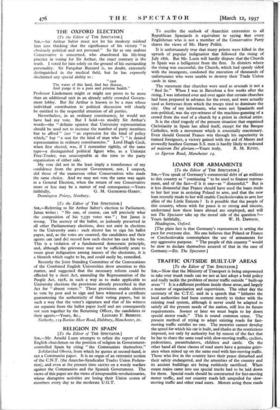Janus writes : " No one, of course, can tell
precisely what the composition of his 7,53o votes was " ; but Janus is wrong. The secrecy of the ballot, so jealously preserved in all other Parliamentary elections, does not exist in elections to the University seats : each elector has to sign his ballot paper, and, as the votes are counted, the candidates and their agents can (and do) record how each elector has cast his vote.
This is a violation of a fundamental democratic principle, and, although the grievance may not be sufficiently acute to rouse great indignation among masses of the electorate, it is a blemish which ought to be, and could easily be, remedied. Recently the Joint Standing Committee of the Convocations of the Combined English Universities drew attention to this matter, and suggested that the necessary reform could be effected by a short Act, amending the Representation of the People Act, 1918, in such a way as to make applicable to University elections the provisions already prescribed in that Act for " absent voters." These provisions enable electors to vote by post and to sign and have witnessed a certificate guaranteeing the authenticity of their voting papers, but in such a way that the voter's signature and that of his witness are separate from the ballot paper itself and are consequently not seen together by the Returning Officer, the candidates or Netherbv, 119 Barlow Moor Road, Didsbury, Manchester, zo.














































 Previous page
Previous page